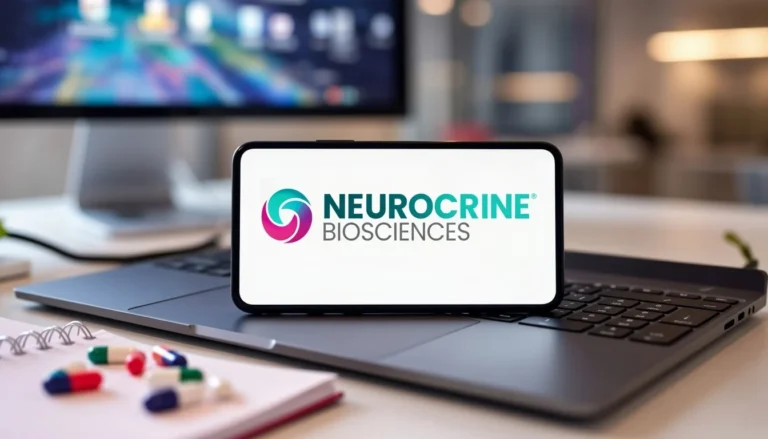
Revelation Biosciences Advances Development of Gemini Therapy for Infections in Severe Burn Patients
Revelation Biosciences, Inc. a clinical-stage life sciences company pioneering approaches to rebalancing inflammation to optimize human health, has unveiled a significant strategic expansion of its Gemini program. The company announced the initiation of a new target indication focused on the prevention of infection in patients hospitalized with severe burns. This initiative, formally titled the GEM-PBI (Gemini for the Prevention of Burn-related Infections) program, marks an important step in broadening the therapeutic scope of Gemini and potentially addressing a critical unmet medical need in a vulnerable patient population.
The move follows earlier developments in the company’s pipeline related to postoperative infection prevention, encompassed by the GEM-PSI (Post-Surgical Infection) program. Both indications are underpinned by intellectual property originating from Vanderbilt University and licensed to Revelation Biosciences. The IP portfolio includes preclinical and early translational work that laid the foundation for the therapeutic application of Gemini in infection prevention across multiple inflammatory scenarios.
The Medical Burden of Infection in Severe Burns
Burn injuries, particularly those requiring hospitalization and intensive care, often result in a host of systemic complications. Chief among them is the high risk of opportunistic and secondary infections, especially those caused by antibiotic-resistant pathogens. Infections are a leading cause of morbidity and mortality among severe burn patients due to the compromised state of the skin barrier, extensive inflammation, immune dysregulation, and prolonged hospital stays.
Pseudomonas aeruginosa, in particular, is a prevalent pathogen in this setting and is notoriously difficult to treat. As such, any intervention capable of mitigating infection risk while modulating inflammatory response could dramatically improve outcomes for patients with severe burns.
Gemini: A Novel Approach to Immune Modulation and Infection Prevention
Gemini is Revelation Biosciences’ lead immunomodulatory therapy, developed to rebalance the immune system by targeting inflammatory processes at the molecular level. The compound has demonstrated promising biomarker activity in both preclinical and early clinical studies, suggesting potential utility in a wide range of conditions driven by dysregulated inflammation.
Revelation’s new GEM-PBI initiative represents a highly targeted application of Gemini’s immunomodulatory capabilities, focusing on infection prophylaxis in burn patients. The program seeks to validate Gemini’s potential not just as a therapeutic for infection treatment, but as a preventative agent capable of reducing the incidence and severity of infections in high-risk patients before complications arise.
According to the company, this approach aligns with its broader mission of rebalancing inflammation to restore homeostasis in diverse pathological states, including those with both innate and adaptive immune dysfunction.
A Collaborative Effort With Vanderbilt University
A crucial driver of the GEM-PBI program is Revelation’s ongoing collaboration with Vanderbilt University, which provided foundational research into Gemini’s mechanism of action and its effects in preclinical burn models.
Dr. Julia Bohannon, Associate Professor in the Departments of Anesthesiology and Pathology, Microbiology, and Immunology at Vanderbilt University, has been a leading voice in advancing this research. She expressed enthusiasm about the potential of Gemini to address infection risk in the burn patient population.
“We are very pleased to be collaborating with the Revelation team for the advancement of Gemini for the prevention of infection in this underserved patient population,” Dr. Bohannon said in the announcement. “We believe the clinical biomarker activity observed with Gemini strongly correlates with our preclinical experience in infection burn models.”
Her team at Vanderbilt demonstrated that post-burn administration of Gemini significantly reduced the severity and duration of lung infections caused by Pseudomonas aeruginosa. These preclinical results also indicated that treatment with Gemini was associated with a general reduction in systemic inflammation, supporting its proposed dual function as both an anti-infective and anti-inflammatory therapeutic.
This translational validation is a critical milestone for the GEM-PBI program, reinforcing the scientific rationale for advancing Gemini into clinical development for this indication.
Strategic and Regulatory Implications

Revelation’s CEO, James Rolke, highlighted the strategic importance of the GEM-PBI program, noting that it builds upon the progress made to date with Gemini and opens the door to new regulatory pathways and development incentives.
“The prevention of infection in severely burned patients is an important endeavor and complements the work Revelation has completed to date,” said Rolke. “The Gemini-PBI program may offer several regulatory, development, and funding opportunities that the company plans to explore.”
Among these opportunities is the potential for regulatory designation under the U.S. Food and Drug Administration’s (FDA) orphan drug, fast track, or breakthrough therapy programs, which are designed to expedite the development of therapies for serious conditions with limited treatment options. Severe burn patients are a high-risk group with significant clinical need, making the GEM-PBI program a strong candidate for such pathways.
Additionally, the program may qualify for government or institutional funding aimed at improving outcomes in trauma and critical care. Revelation has not yet disclosed whether it plans to pursue partnerships or grants to support the clinical advancement of the GEM-PBI program, but such mechanisms are often critical for accelerating development in indications with public health implications.
Integrating with the Broader Gemini Platform
The GEM-PBI program is not a standalone initiative but rather a complementary extension of the broader Gemini platform, which also includes the GEM-PSI (Post-Surgical Infection) program. Together, these indications reflect Revelation’s strategic focus on high-risk patient populations in which infection prevention and immune modulation can be clinically transformative.
Both programs share a common scientific foundation rooted in modulation of the innate immune system. By reducing systemic inflammation and enhancing the body’s ability to manage microbial threats, Gemini is positioned as a novel therapeutic that doesn’t rely solely on antimicrobial action, but rather on rebalancing the immune environment to prevent the conditions that allow infections to thrive.
This approach could be especially important in a healthcare environment increasingly burdened by antibiotic resistance and a dwindling pipeline of new antimicrobials. If successful, Gemini may represent a new class of immunomodulatory anti-infectives—therapies that support the host rather than directly targeting pathogens.
Next Steps for the GEM-PBI Program
Revelation Biosciences has not yet announced the timeline for clinical development of the GEM-PBI program, nor has it disclosed the specific trial design or endpoints it will pursue. However, given the supportive preclinical data from Vanderbilt and the growing urgency to address infections in burn units, the company is likely to prioritize a Phase 1/2 proof-of-concept trial in the near term.
In preparation, Revelation may engage with regulatory agencies to refine its clinical development strategy and seek early feedback on trial design and safety endpoints. The company may also look to expand its collaborations with academic medical centers and burn care experts to facilitate trial enrollment and ensure robust data generation.
The launch of the GEM-PBI program marks a pivotal expansion of Revelation Biosciences’ pipeline and reflects a growing commitment to addressing unmet needs in infectious disease and critical care. By leveraging its partnership with Vanderbilt University and building on promising preclinical data, Revelation aims to validate Gemini as a first-in-class therapy for infection prevention in severely burned patients.
If successful, this program could transform the standard of care in burn units and pave the way for future applications of Gemini in other high-risk populations. It also exemplifies the company’s broader vision of therapeutic immune modulation—rebalancing inflammation not just to treat disease, but to prevent it from taking hold in the first place.





